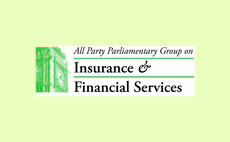
All Party Group value in danger of being thrown out with the murky bathwater
The role and the very existence of All Party Groups is back in the headlines with yesterday's report in The Guardian on the links - disclosed and undisclosed - between many groups and lobbying firms, trade associations and commercial interests and the large sums of money that seem to surround some groups, especially those with an overseas dimension.
This story isn't new - The Times did a very similar exposé in January 2006 and The Guardian first picked it up it in February 2011.
 As everyone who reads this blog knows, I have been involved in running the All Party Parliamentary Group on Insurance & Financial Services (APPGIFS) since it was launched over 20 years ago. The Guardian, like The Times before it, makes some good points and I have alot of sympathy with the growing calls for reform. However, we do have to be careful not to fall into the obvious traps of assuming that every group has a raft of secret funders or a specific lobbying agenda. The APPGIFS certainly doesn't.
As everyone who reads this blog knows, I have been involved in running the All Party Parliamentary Group on Insurance & Financial Services (APPGIFS) since it was launched over 20 years ago. The Guardian, like The Times before it, makes some good points and I have alot of sympathy with the growing calls for reform. However, we do have to be careful not to fall into the obvious traps of assuming that every group has a raft of secret funders or a specific lobbying agenda. The APPGIFS certainly doesn't.
Let's get the facts about the group on the table. Incisive Media is not a lobbyist. It is a publishing company. We initiated the group 21 years ago through one of our publications, Post Magazine, the leading weekly magazine for the UK insurance industry. The group has always been run on a strictly neutral basis and we frequently invite critics of the insurance industry to speak to the group so that MPs get a balanced view of every issue. We have continued this policy as we have broadened the scope of the group's activities to cover other retail financial services sectors.
Our mission has always been to provide a channel for more effective communication between an important service sector and Parliament. The benefit to us – and there is one – is to be at the heart of the political debate on many crucial issues affecting our readers. There are no hidden funders.
PriceWaterhouse Coopers has acted as technical consultant to the group for most of the time the group has been running but there is no financial link. PWC's briefings cover all aspects of the issues the group debates in a neutral and even-handed manner. It also produces minutes of the open meetings, one of the sensible proposals for reform put forward by The Guardian yesterday. These minutes and briefings are published.
No-one pays us or PWC for access to the group. Where companies, trade bodies and others want to meet the group privately over breakfast, lunch or dinner they make all the arrangements and pay for them: we just invite the members on their behalf.
We have tried to be as transparent as possible and for some years have made as much more information about the group available online than required by the current rules. This includes a full membership list (not just the 20 you are are required to publish to register a group), details of the group's meetings, including which companies have invited the group's members to private lunches or dinners, relevant briefing papers and minutes of meetings.
All of the meetings in the House of Commons are open to anyone to attend and there are frequently over a dozen people in the public seats at meetings freely observing the proceedings. When we have faced requests from organisations presenting to the group at these meetings for the sessions to be closed we have resisted them.
The group does not have any external members. This is the Associate Parliamentary Group status that The Guardian refers too and which, I believe, causes many of the problems. We have frequently been approached by companies and other organisations to open up the membership to external groups, many offering to pay to 'support' the group. This route has never attracted us. We have happily worked with other groups run on this basis but have always felt one of the strengths of our group is its neutrality and its lack of corporate funding or direct industry linlks.
Personally, I think it would be helpful if the Associate Parliamentary Group status was abolished. That would leave us with groups like the APPGIFS which just has members from the House of Commons and House of Lords. But they still need someone to administer them. Why you may ask?
In an ideal world MPs would run such groups themselves. You could argue that if they are sufficiently interested in a topic they could get together, set-up a group and invite people to come and meet that group. This isn't going to happen for a variety of reasons. Probably top of the list is that MPs (even more so Peers) simply do not have the administrative resources to take on something like this. We underfund our Parliamentary representatives and expect them to do far too much with very limited resources. They also do not have the depth and range of contacts with an industry that an organisation that is part of that industry has.
So, you inevitably end up with external support for groups. The challenge is to stop that being provided by firms, trade associations or lobbyists pressing just a narrow range of views on the relevant issues.
The answer lies in a major overhaul of the rules.
• The Associate Parliamentary Group status should be scrapped as it is too open to abuse and causes confusion
• Full membership lists should be published
• A requirement for a minimum number of open meetings per session should be introduced
• Meetings should be minuted and the minutes published
• Details of all administrative support and the basis on which it is provided should be published, if appropriate with an estimate of the cost of providing that support
• Full details of additional benefits available to members of the group should be published
• A mechanism for independent review of any decision by a group to limit access to its meetings should be set-up.
Some people may by now be wondering whether it wouldn't be better just to abolish the whole All Party Group concept as it seems to be open to so much potential abuse. I think this would be an over-reaction and would risk losing a demonstrably valauble channel of communication with Parliament. Over the years, the APPGIFS has proved there is a need and a role.
Its recent work on referral fees, whiplash claims and the cost of motor insurance illustrates that value. The Transport Select Committee was looking at these issues too but the inquisitorial, often confrontational, modus operandi of the select committees can sometimes miss vital details and the subtle nuances of an issue. The APPGIFS was able to very effectively complement this work and provide MPs with a more rounded understanding of the issues.
 Going back to the early days of the group – in the week of the 20th annivesrary of the Baltic Exchange IRA bomb (pictured) – it was instrumental in bringing insurers, major property owners and ministers together to initiate the dicussions that led to the creation of Pool Re. A review of the work of the group over its first 20 years which I wrote last year provides plenty of additional evidence of the value of effective, neutral and transparent All Party Groups.
Going back to the early days of the group – in the week of the 20th annivesrary of the Baltic Exchange IRA bomb (pictured) – it was instrumental in bringing insurers, major property owners and ministers together to initiate the dicussions that led to the creation of Pool Re. A review of the work of the group over its first 20 years which I wrote last year provides plenty of additional evidence of the value of effective, neutral and transparent All Party Groups.
Reform, yes. Effective transparency, by all means. Independent review, certainly. But please be careful not to throw away something valauble in a fit of over-enthusiastic cleansing.
Only users who have a paid subscription or are part of a corporate subscription are able to print or copy content.
To access these options, along with all other subscription benefits, please contact info@postonline.co.uk or view our subscription options here: https://subscriptions.postonline.co.uk/subscribe
You are currently unable to print this content. Please contact info@postonline.co.uk to find out more.
You are currently unable to copy this content. Please contact info@postonline.co.uk to find out more.
Copyright Infopro Digital Limited. All rights reserved.
As outlined in our terms and conditions, https://www.infopro-digital.com/terms-and-conditions/subscriptions/ (point 2.4), printing is limited to a single copy.
If you would like to purchase additional rights please email info@postonline.co.uk
Copyright Infopro Digital Limited. All rights reserved.
You may share this content using our article tools. As outlined in our terms and conditions, https://www.infopro-digital.com/terms-and-conditions/subscriptions/ (clause 2.4), an Authorised User may only make one copy of the materials for their own personal use. You must also comply with the restrictions in clause 2.5.
If you would like to purchase additional rights please email info@postonline.co.uk
